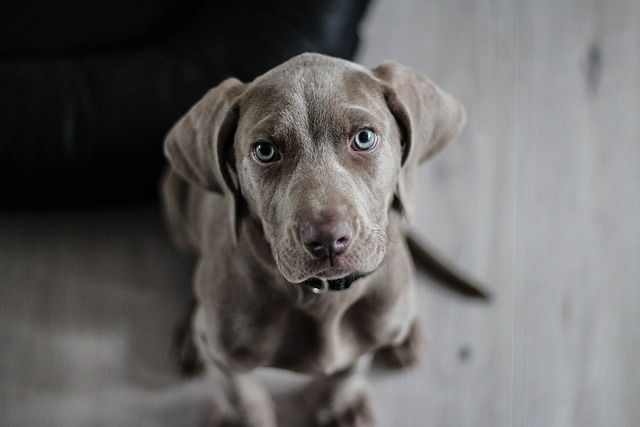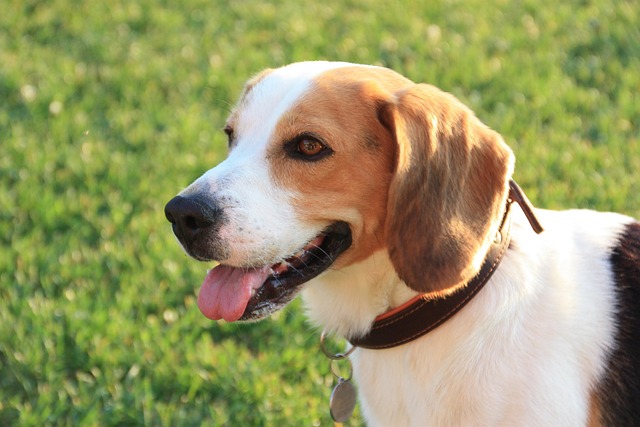
When will Samoyed have his teeth changed
When you look down at the Samoyed by your feet, it rubs your palm with its wet nose, revealing pink gums and tiny teeth.
When the dog that accompanies you day and night suddenly loses interest in the dog food that it usually devours, but wags its tail and begs for treats, every pet owner's heart will be clenched tightly. This "picky eating" behavior seems to be just a small problem of eating habits, but in fact there may be complex reasons behind it, which are not only related to the dog's physical health, but also closely related to their psychological state and daily behavior patterns. Every worried sigh and every helpless attempt are full of the owner's deep concern for their fur child. To solve this mystery, we need to explore the mystery behind the dog's behavior in depth.
From a medical point of view, a dog's refusal to eat a full meal but interest in snacks may be a distress signal sent by the body. Oral problems are one of the common causes. Diseases such as periodontitis, oral ulcers, and tooth fractures can cause dogs to feel strong pain when chewing food. Imagine that when we have a toothache, it is difficult to even drink water, let alone eat hard food. The same is true for dogs. Snacks are usually soft and easier to eat, so they are more willing to choose snacks. Gastrointestinal discomfort can also affect the dog's appetite. Diseases such as indigestion, gastroenteritis, and parasitic infections can cause gastrointestinal disorders in dogs, causing nausea, vomiting, bloating, and other discomforts. At this time, dogs will instinctively resist eating, and snacks with strong flavors and less irritation may be more acceptable to them than bland dog food. In addition, some systemic diseases, such as kidney disease, liver disease, and diabetes, can also cause dogs to lose appetite. These diseases can change the dog's body metabolism and hormone levels, affect their sense of taste and smell, and make the original favorite food become tasteless. Only snacks with stronger fragrance can attract their attention.
 In addition to physical diseases, psychological and behavioral factors of dogs may also lead to this picky eating behavior. In modern families, dogs are often regarded as important members of the family and enjoy endless pampering. Because of their love for dogs, owners may frequently feed them snacks. Over time, dogs will form a perception that snacks are delicious food, and dog food becomes dispensable. Just like a child who always eats candy will lose interest in regular meals, dogs will become picky eaters due to excessive intake of snacks. In addition, changes in the environment can also affect a dog's appetite. When a dog moves to a new home, a new family member joins the family, or the owner's daily routine changes, they will feel anxious and uneasy. Under the influence of this emotion, the dog may express the inner pressure by refusing to eat, and the familiarity and pleasure brought by snacks can alleviate their anxiety to a certain extent, so they are more willing to accept snacks.
In addition to physical diseases, psychological and behavioral factors of dogs may also lead to this picky eating behavior. In modern families, dogs are often regarded as important members of the family and enjoy endless pampering. Because of their love for dogs, owners may frequently feed them snacks. Over time, dogs will form a perception that snacks are delicious food, and dog food becomes dispensable. Just like a child who always eats candy will lose interest in regular meals, dogs will become picky eaters due to excessive intake of snacks. In addition, changes in the environment can also affect a dog's appetite. When a dog moves to a new home, a new family member joins the family, or the owner's daily routine changes, they will feel anxious and uneasy. Under the influence of this emotion, the dog may express the inner pressure by refusing to eat, and the familiarity and pleasure brought by snacks can alleviate their anxiety to a certain extent, so they are more willing to accept snacks.
The development of eating habits also plays a key role in the dog's picky eating behavior. If the owner does not feed the dog regularly and let them eat food at any time, it will cause the dog to have no hunger and lack enthusiasm for eating. Moreover, when the dog is picky, the owner often changes the type of dog food out of concern, or uses snacks to lure them to eat. This practice seems to be caring for the dog, but it actually reinforces the dog's picky behavior. The dog will find that as long as he refuses to eat dog food, he may get more delicious snacks, so he will be more determined to resist the regular meal.
Faced with the problem of dogs only eating snacks and not eating regular meals, the owner is both anxious and helpless. Watching the once energetic little guy gradually become thinner, every look and every move touches the owner's heart. But to solve this problem, the owner needs to remain calm and patient, and use scientific methods to gradually guide the dog to restore normal eating habits. First, take the dog to the pet hospital for a comprehensive physical examination to rule out disease factors. If the picky eater is caused by disease, it should be treated according to the veterinarian's advice. Only when the dog's body recovers can the appetite return to normal.
After excluding disease factors, the owner needs to adjust the dog's dietary structure and habits. Reduce the amount of snacks fed, and use snacks as rewards, only when the dog completes specific training or performs well. At the same time, feed the dog dog food regularly and quantitatively, fix the feeding time and amount every day, and let the dog develop good eating habits. If the dog does not finish the dog food within the specified time, put the food away until the next feeding time. At first, the dog may show restlessness due to hunger, but as long as the owner sticks to the principle, does not compromise, and does not soften, the dog will gradually understand that only dog food can fill its stomach. In this process, the owner can try to change dog food with different flavors and brands, and choose high-quality, fresh, and palatable products to increase the dog's interest in dog food.
Dogs who only eat snacks and not meals are like a complex puzzle that requires the owner to use love, patience and professional knowledge to solve. Every attempt and persistence is a protection for the health and happiness of the dog.

When you look down at the Samoyed by your feet, it rubs your palm with its wet nose, revealing pink gums and tiny teeth.

When you gently stroke the fluffy, soft white fur of a Samoyed and feel the smoothness under your fingertips, it's like touching a warm cloud

The clear and bright eyes of dogs are an important window for establishing emotional connections with us. When this window is covered with haze, the owner is often distressed and anxious.

When the dog that used to be gentle and cute, wagging its tail to greet you, suddenly bares sharp teeth, emits low growls, or even makes lunging bites,

When you gently stroke a Schnauzer's fluffy head, its ears—like fairy wings—flick softly, as if whispering boundless joy. However,

As pet owners,we always want to give our dogs the best care,and deworming is an important part of daily care.The question of"whether to feed deworming medicine to dogs without parasites"involves health considerations and emotional care.